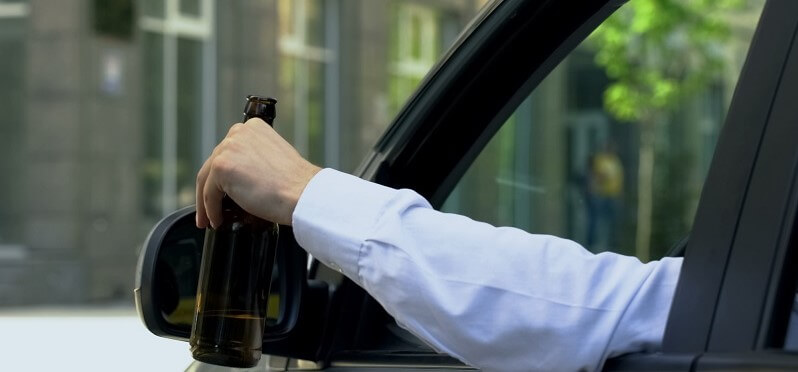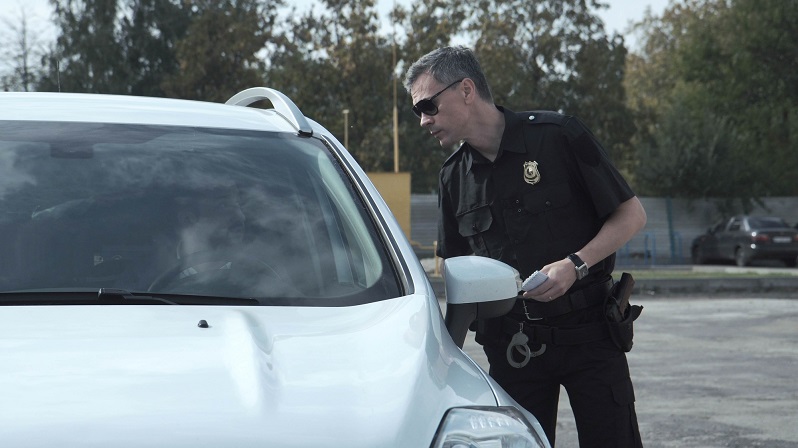Dallas DWI Accident Lawyer
Dallas DWI Accident Lawyer – A Rundown Of DWI Laws In Texas
It is generally thought that driving while intoxicated (aka DWI) is just related to drinking, but that is just half of what Texas law considers a DWI. In some other states, this is referred to as drunk driving, driving while intoxicated, or DUI.
Although there is a legal limit for blood alcohol percentage content (BAC), Texas law defines “intoxicated” as having one’s faculties affected by either alcohol or drugs. This implies that anybody who drives while under the influence of drugs or controlled substances in Texas may be prosecuted with a DWI.
In Texas, the same legislation that makes drunk driving a criminal also makes drugged driving a crime. This legislation defines DWI as controlling a motor vehicle when “not having the normal use of your mental or physical faculties” because of drug use.

DWI – Drugs
Which Drugs Are Illegal?
The drugged driving legislation in Texas applies to a wide spectrum of intoxicating drugs. The legislation prohibits the introduction of “any prohibited substance, drug, hazardous drug, a combination of two or more of such drugs, or any other substance into the body.”
Of course, this term covers well-known substances like marijuana, cocaine, methamphetamine, and opioids. In essence, a driver may be charged with a drug DWI if they operate a vehicle while intoxicated by any narcotic. It’s also vital to understand that the violation covers medications or restricted substances that were either prescribed by a doctor or obtained legitimately as an over-the-counter remedy.
In Texas, driving under the influence of drugs is illegal. You may be charged with DWI if you are legally inebriated with alcohol OR impaired by any other drug while driving a vehicle in Texas. Legally inebriated is having a blood or breath alcohol content (BAC) of.08 or above on a chemical test.
A Texas DWI is not primarily based on the drinking of alcohol. The Texas DWI legislation also makes driving under the influence of narcotics a felony (whether prescribed by a doctor or purchased over the counter, or an illegal substance).
The sentence is the same whether the alleged DWI even includes cold medication, prescription medicines, or illicit narcotics. These allegations should not be taken lightly. Any kind of drug DWI accusation in Dallas needs the services of an expert drug DWI attorney such as The Medlin Law Firm.
Driving Under The Influence Of Prescription Drugs
 According to the statute’s simple text, you may be charged with DWI even if you were driving without ever having ingested alcohol. This does not imply that you may be charged with a drug DWI if you take a drug and drive a car. The test aims to see whether the medicine affects your mental or physical capacities, such as producing drowsiness, dizziness, or tiredness.
According to the statute’s simple text, you may be charged with DWI even if you were driving without ever having ingested alcohol. This does not imply that you may be charged with a drug DWI if you take a drug and drive a car. The test aims to see whether the medicine affects your mental or physical capacities, such as producing drowsiness, dizziness, or tiredness.
Notably, the fact that you have the legal right to take the narcotic is not a defense under Texas law. As a result, even if you have a legitimate doctor’s prescription, you may still be charged with DWI if the drug affects your ability to drive. As a result, it is critical that you read medicine labels for cautions and adverse effects and discuss them with your doctor.
Medicines Available Without A Prescription
In addition to prescription pharmaceuticals, an officer may charge you with DWI if they believe you were impaired by over-the-counter medications such as Tylenol PM, cold medicine, cough medicine, or allergy medication. Charges based on these forms of over-the-counter medicines entail consequences that are as severe as those based on drunkenness from alcohol. If you have been charged with DWI, you should obtain legal representation from one of our knowledgeable Houston DWI drug attorneys right once. Even though these drugs are not banned narcotics, a conviction has substantial long-term ramifications.
DUI & DWI Differences
In Texas, there is a clear distinction between DWI and DUI. You’ve probably heard of the words DUI and DWI. However, you may not completely comprehend how the two concepts are related and how they vary. To begin, “DUI” stands for “driving under the influence,” while “DWI” is for “driving while intoxicated.”
A DUI or DWI in Texas refers to someone driving a vehicle in a public place while inebriated, which indicates he or she lacks the ability to perform mentally or physically because of the use of alcohol or a drug/medicine. In Texas, the official meaning of this offense is “DWI,” while the terms “DUI” and “DWI” are often used interchangeably.
DUI Explained
If a person 21 years of age or older uses a car while legally inebriated, he or she may be charged with DWI (has a .08 blood BAC or is impaired by drugs).
Under Texas law, however, if a driver stopped by the police is under 21 years old and has any level of alcohol at all in his or her system, he or she might face being charged with “DUI” (or “DUIA,” which stands for “Driving Under the Influence of Alcohol”). In Texas, this is the sole legally allowed usage of the phrase “DUI.”
Texas Zero Tolerance Policy
Drunk driving (DWI) is an issue that affects all Texans. Texas passed legislation to dissuade drivers from drinking and driving, making Texas highways safer Texas enacted zero tolerance for kids who commit any alcohol-related offenses
A “minor” in Texas is someone under the age of 21 years old. A minor may not buy or try to buy any alcohol or possess an alcoholic beverage. If a youngster has ANY detectable quantity while driving a car with alcohol in their system, then this is a criminal violation.
A DUI is a crime that occurs when a person is under the influence. The legal limit of 0.08 percent BAC for drunkenness does not apply.

Which Is Worse: DUI Or DWI?
DWI is a more severe felony in Texas. Under the Texas Traffic Code, young people are only prosecuted with DUI. However, since a DUI is charged when any level of alcohol is discovered in their system, it is considerably simpler to be proven guilty.
DWIs are punishable under the Texas Penal Code, making them a severe crime. The penalties may vary from fines to time in jail or prison.
Although neither offense should be taken lightly, the repercussions of a DWI are more severe than those of a DUI. In any instance, you should get in touch with The Medlin Law Firm.
DWI – Flying
While charges for flying while drunk is not as prevalent as those for driving, they are as serious.
Operating an aircraft while drunk is a violation of both federal and state laws, and you may face both federal and state criminal prosecution. Your employer may also take disciplinary action against you if you violate the company’s policy on drunk flying.
As a result, if you are accused of flying while inebriated, you must retain the services of a defense counsel, such as The Medlin Law Firm.
The use of drugs and alcohol by pilots raises worries about aircraft safety. The Federal Aviation Administration governs the aviation sector by enacting rules and regulations to improve air safety. Some of these rules apply to flying when inebriated.
Pilots must follow the requirements outlined in Federal Aviation Regulations 91.17, which prohibit flying an aircraft:
- Within 8 hours after ingesting alcoholic beverages
- While under the effect of alcoholic beverages
- While under the influence of a medicine or substance that has a negative impact on safety
- With a blood alcohol content (BAC) of.04 percent or higher
DWI – Boating
Summer is almost coming, which means more time is spent on the lake to escape the Texas heat. Water activities abound, ranging from speed boating to water skiing to kayaking. These are best enjoyed with family and friends, which may lead to the use of alcoholic beverages.
Before you take a drink of any alcoholic beverage, familiarize yourself with Texas’ boating under the influence rules. They are not the same as driving a car, yet they have just as catastrophic implications.
Operating a watercraft of any type while drunk is illegal in Texas, just like drinking and driving. Unlike in several jurisdictions, the blood alcohol limit is 0.08 percent, with no lower level for people under the age of 21. Boats are exempt from the open container legislation that applies to autos.
You will lose your driver’s license for at least 180 days if you are arrested for BUI on a boat with a 50-horsepower engine or greater and refuse to undergo a breath, urine, or blood test.
DWI – Penalties
First Offense
A first DWI violation may result in a maximum fine of $2,000, not counting the administrative “superfine,” and 6 months in prison, depending on your BAC (blood alcohol content).
If your BAC is higher than.15, the charge is moved up from a class B to a class A. This increase could result in a $4,000 fine and a year in prison. Your driver’s license may also be suspended by the state. You may also be required to place an ignition interlock device in your motor vehicle and participate in a DWI intervention or education program.
Second Offense
In Texas, a second DWI offense carries the same consequences as a first offense. However, regardless of your BAC, you might face a $4,000 penalty and a year in county prison for this violation.
3rd Or Higher Offense
In Texas, the consequences for a third DWI are no longer a misdemeanor. A DWI 3rd becomes a 3rd-degree felony. It is punishable by a $10,000 penalty and ten years in state prison.
Some DWI offenses, regardless of whether it is your first or third offense, will immediately escalate to the level of a felony. If you have an alcohol container that is open or a youngster in your car, the offense will become a felony.
(214) 888-4810 We cannot receive pictures via text so please send those via email or hand deliver to our office.
(214) 888-4810 No podemos recibir imágenes por mensaje de texto, así que envíelas por correo electrónico o entréguelas personalmente en nuestra oficina.






